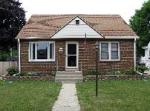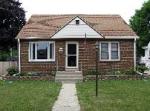 Often thought to be a mortgage for those who are cash poor and house rich, with a reverse mortgage there may be an attitude of “I hope to never have to do a reverse mortgage.” And seniors may be embarrassed to let others know they did a reverse mortgage.
Often thought to be a mortgage for those who are cash poor and house rich, with a reverse mortgage there may be an attitude of “I hope to never have to do a reverse mortgage.” And seniors may be embarrassed to let others know they did a reverse mortgage.
Why should there be embarrassment when doing a reverse mortgage when there isn’t an embarrassment when one has a conventional mortgage? Most homeowners have a mortgage or at least did one to purchase their home aren’t embarrassed by this fact. Well, it should be the same with a reverse mortgage. Just as a conventional mortgage isn’t just for the cash poor, house rich the reverse mortgage isn’t either.
A reverse mortgage is a mortgage just like any other but has special terms for senior homeowners 62 and older. To qualify for a conventional mortgage, lenders look at one’s income, credit score, and risks to ensure the loan payments can be made. The reverse mortgage has no income or credit score requirements and no monthly payment requirements which benefits seniors who are often on a fixed income. With a conventional mortgage monthly payments are required – these can sometimes be difficult for seniors to make on their fixed income.
As with a conventional mortgage the title stays in the borrower’s name and the homeowners are responsible for paying their taxes, insurance and maintaining the property.
Additionally there are more options on how the funds are received including monthly payments structured as needed, line of credit (with a growth rate), lump sum, or a combination of these. Another difference and benefit for seniors who do a reverse mortgage is that the loan is non-recourse, which means there is no personal liability for borrowers or their estate as long as the borrower or the heirs are not retaining ownership.
The loan amount on the reverse mortgage is determined by the home value, the age of the borrower and what’s called an Expected Interest Rate (only used to determine the loan amount – the interest on the loan can be different). The older one is the more funds are available to them. Closing costs are comparable to a conventional mortgage with an origination fee, appraisal fee, title company charges and recording fees. As a FHA HUD insured loan the Home Equity Conversion Mortgage or HECM fees are regulated by HUD.
HUD insuring the loan provides advantages including guaranteeing the funds are available for borrowers; guaranteeing the lender against default or shortfalls which means the interest rates are lower (currently under 4% on the adjustable rate, 5.56% on the fixed) compared to other mortgages; providing a line of credit growth rate (available only with reverse mortgages); insuring as a reverse mortgage it is a non-recourse (no personal liability) loan.
In the current mortgage market many seniors don’t qualify for a conventional mortgage so the reverse mortgage is a great option for them. Even if they do qualify for a conventional mortgage, the reverse mortgage can be more beneficial. If they have a conventional mortgage and “life” were to happen seniors often then juggle trying to make the mortgage payments or paying their medical expense or life necessities.
With a limited or fixed income seniors often struggle to maintain their lifestyle. Sometimes they feel they need to work just to pay their bills or pay their conventional mortgage. Refinancing with a reverse mortgage can mean improved cash flow allowing borrowers to maintain their lifestyle. It can also mean that they don’t have to work.
At the age of 70, Len was still working a physically challenging job just to be able to pay their conventional mortgage. When they did the reverse mortgage Len was able to retire and enjoy his time with his family. “[The reverse mortgage] definitely saved us.” they said.
Helen, another Minnesota homeowner, has some retirement investments but rather than cashing in on those she chose to do a reverse mortgage. This allowed her to do some desired home repairs as well as have cash for future needs.
 Cheryl wanted to travel so she did the reverse mortgage on her Minnesota home so she could pay off her conventional mortgage and improve her cash flow allowing her the funds to fulfill her desires without touching her retirement funds.
Cheryl wanted to travel so she did the reverse mortgage on her Minnesota home so she could pay off her conventional mortgage and improve her cash flow allowing her the funds to fulfill her desires without touching her retirement funds.
Knowing that the reverse mortgage is like any mortgage but with special terms one should not be embarrassed to do a reverse mortgage rather than a conventional mortgage – after all it’s just another mortgage option.
© 2010 Beth Paterson, Beth’s Reverse Mortgage Blog, 651-762-9648
This material may be re-posted provided it is re-posted in its entirety without modifications and includes the contact information, copyright information and the following link: http://wp.me/p4EUZQ-iQ
Related articles:
- Finance Retirement With A Reverse Mortgage
- Reverse Mortgages Answers Prayers
- Respect For Oneself Increases With A Reverse Mortgage
- Why Are You So Afraid of Reverse Mortgages?
- You Need To Know Reverse Mortgage Borrowers Are Highly Protected!
Blog posts’ information is current as of date post published, program is subject to change in in the future. Contact us for current information, 651-762-9648.
This site or the information provided is not from, or approved by, HUD, FHA, or any US Government or Agency.






